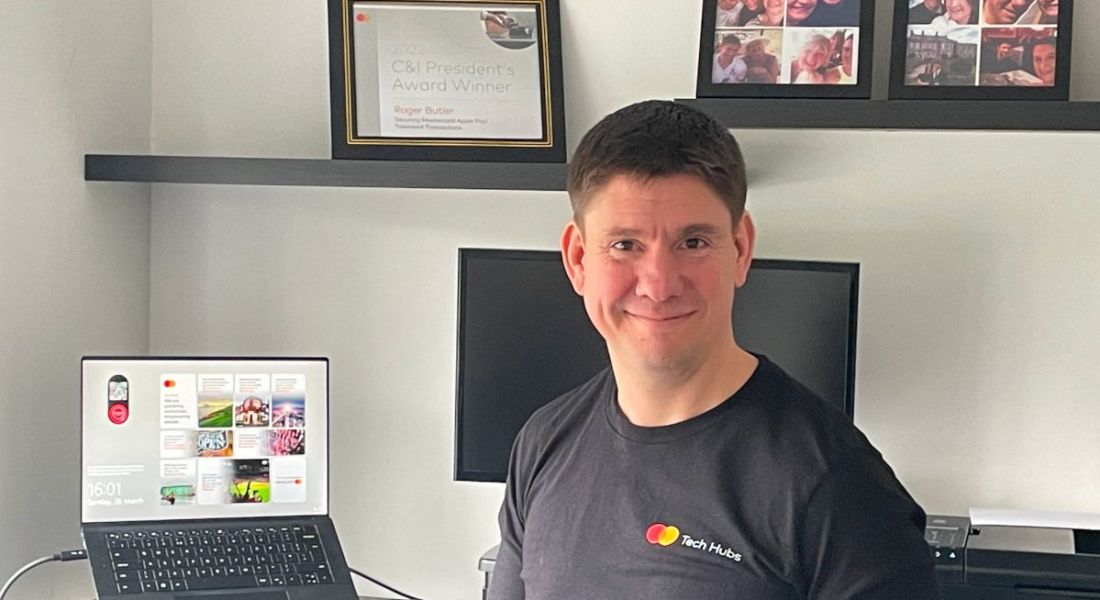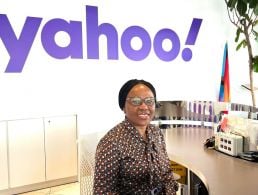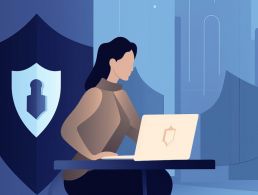Mastercard’s Roger Butler discusses the skills that play an important part in a cybersecurity role and how the sector has evolved.
Roger Butler is vice-president of software engineering and cyber and intelligence at Mastercard. Butler began his Mastercard career as a senior support engineer in the Dublin office almost 10 years ago and worked his way up to his current role.
Speaking about his entry into the cybersecurity field, Butler said “I remember feeling proud to get the opportunity to work in cybersecurity, making a difference in the world stopping bad actors from profiting from financial crimes. And I continue to feel the same way today working in Mastercard with so many talented people.”
‘I believe communication, composure, analysis and collaboration play an important part in my day-to-day role’
What brought you to your current job?
My first taste of working in the IT industry came through work experience during my last year of school. I spent two weeks at IBM Hursley building out rudimentary websites and getting familiar with some of IBM’s Technologies. It really got me excited about working in the industry.
That early experience really stuck with me. I am a big fan of the Mastercard Intern and Graduate Programs, giving young people both experiences and then opportunities in a global payment and technology company. Through my time at Mastercard, I have seen some great individuals come through and I’ve seen graduates progress in the cybersecurity industry, becoming people managers and software architects within the Business Rules Program.
I started my IT career in 1998 working for a telecommunications company as a test engineer. And before my role at Mastercard I was working for a subsidiary of Qualcomm as a senior support engineer. The experience gained in these roles – problem-solving, analysing data and solutioning – have served me well in my current role within cybersecurity.
After joining Mastercard as a senior support engineer, I was looking to take my first steps into leadership and the opportunity came to join the Business Rules team who I had built strong relationships with in my previous role. I was fascinated with the role of manager of the Customer Rules team, engaging with Mastercard issuers and building out rules on their behalf to protect against fraud at a network level.
What skills do you use on a daily basis that are specifically helpful in cybersecurity?
When reacting to a potential fraud event, it is imperative to keep composure and ensure there is clear communication with the teams you’re partnering with. To identify suspicious activity against what might be legitimate spend, analytical skills are key in helping all partners make a clear and decisive decision on action to be taken. Taking that into consideration, I believe communication, composure, analysis and collaboration play an important part in my day-to-day role.
Was there any one person who was particularly influential as your career developed?
Chris Bucher, who is now senior vice-president at Mastercard, gave me my first opportunity in management within the Business Rules team and helped me understand the important part the team play for Mastercard as well as the payments ecosystem.
What do you enjoy most about your job?
I enjoy engaging with our customers and helping to build out complex rule strategies on their behalf to protect them against anomalous activity and potentially catastrophic types of fraud. I enjoy giving our customers insights into some of our applications like The Fraud Center and rule authoring best practices to enable them to self-service rule strategies to protect themselves.
I also love collaborating with our internal cybersecurity partners building out new products to protect our customers in different ways. From working with our product teams and development teams to our data scientists, we enable technology like artificial intelligence to further our products and services.
My job is never the same from day to day. In the Business Rules team, we must be both reactive and proactive and I get challenged every day. There is never a dull moment.
How has this role changed as the cybersecurity sector has grown and evolved?
When I joined the Business Rules team, we supported a handful of rules-based products within our cyber and intelligence organisation. We now support over 50 products and services across authorisation, authentication and clearing flows.
My team has grown to support the ever-expanding catalogue of cyber and security products and services and my role has changed, supporting our feature teams whose responsibility it is to work with product teams building out and supporting new products and services as well as continuing to manage customer engagement across all regions.
These products and services have been developed in line with the introduction of new payment methods which then become the norm, from tap and go, through to mobile payment wallets.
What tips would you give someone who wants to work in cybersecurity?
Keep up to date with new technologies. Fraudsters attempt to identify vulnerabilities as technology advances and new payment methods become available.
Understand changing fraud patterns that impact all parties in the payments ecosystem.
Make connections with people in the industry to gain insight into the demands of working within cybersecurity.
10 things you need to know direct to your inbox every weekday. Sign up for the Daily Brief, Silicon Republic’s digest of essential sci-tech news.




